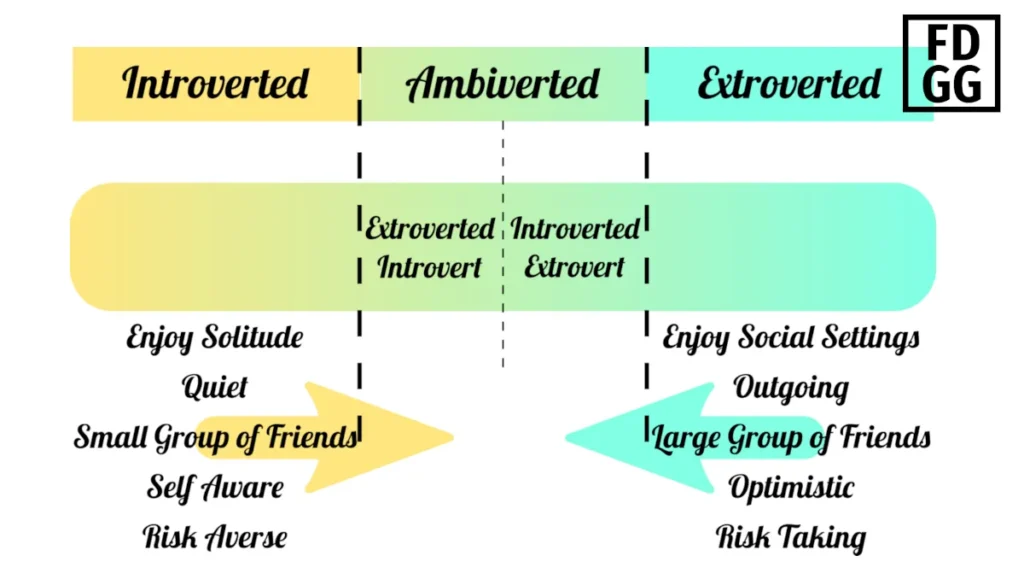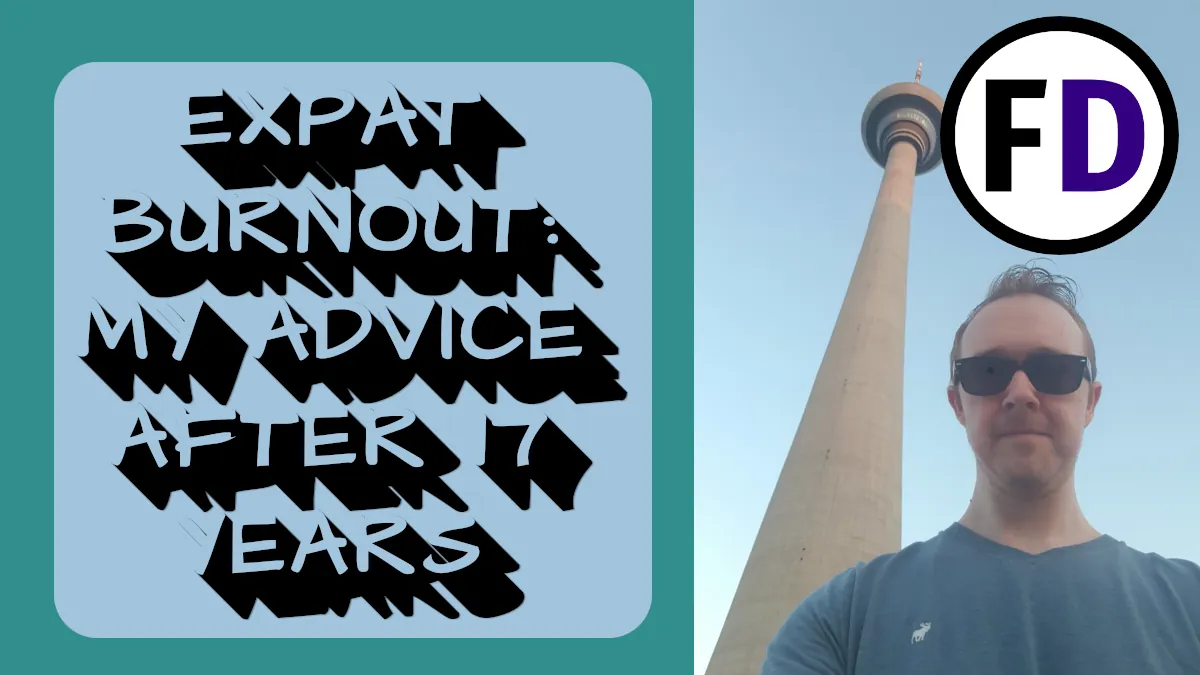Are you unsure as to whether you or someone close to you is introverted or extroverted? Perhaps their shyness seems to come and go, or one day they’re the center of attention and the next seem overwhelmed interacting with overly stimulating people. Know how to recognize the extroverted introvert in your social circle, there are more of them than you think.
Extroversion is a scale from introverted to extroverted. Most people land closer to the middle but pinpointing where you land will uncover much about your personality.
The outer edges of the scale are relatively simple. You’re either introverted or extroverted.
- An introvert feels drained by social situations and gets energy from being alone. Often characterized as shy and introspective, the introvert is focused internally.
- An extrovert gets energy from social interaction. With a gregarious temperament and often expressive and talkative, you’ll know if you’re in the presence of an extrovert.
But things get a little more complicated once you get closer to the middle.
Ambiverts, Omniverts, and What Is an Extroverted Introvert?

In the middle of the extroversion scale lie the ambiverts, omniverts, introverted extroverts, and extroverted introverts.
- Omniverts switch from being utterly extroverted at one time to being entirely introverted at others. They never land in the middle of the scale. Instead, they jump from one side to the other.
- Ambiverts are the people who land in the middle of the scale. They are a mix of both and come in two forms.
- Introverted extroverts are naturally extroverted but also display some introverted qualities.
- Extroverted Introverts are naturally introverted but display some extrovert traits.
Is Extroversion the Best Test of Personality Type?
Swiss psychologist Carl Jung first coined the terms introverted and extraverted. His extroversion scale is one way to define personality, but there are other ways.
Myers Briggs Type Indicator
You’ve likely heard of the Myers Briggs Type Indicator or MBTI with its 16 personality types. Each personality type uses four letters to define its leading tendencies.
- I or E for introversion or extraversion
- S or N for sensing or intuition
- T or F for thinking or feeling
- J or P for judging or perceiving
If you’re interested to find out your Myers Briggs Type Indicator, take a free personality test.
The Social Sexual Hierarchy
Sometimes labeled as mere pseudoscience, the socio-sexual hierarchy has long been used to describe the different personality types among men and, more recently, women.
- Alpha Male – the dominant leader
- Beta Male – the submissive follower
- Delta Male – the average Joe
- Gamma Male – the curious explorer
- Sigma Male – the lone wolf
- Omega Male – the nerd or geek
The Big Five
In the big five theory, extroversion is only one of the five components used to measure personality. Also including:
- Agreeableness
- Conscientiousness
- Extroversion
- Openness
- Neuroticism
Regarding acceptance among the scientific community, psychologists agree that the big five is as close as we have come to understanding personality.
It’s crucial, therefore, to remember that extroversion is not a personality type by itself. It does tell you a lot about how people will interact, but you can’t use it to describe someone’s fundamental nature.
For example, someone may be very introverted, so you know they prefer to be alone. But their introversion doesn’t tell you anything about how hardworking they may be or how open they are to new ideas. So, you need to measure conscientiousness and openness for that.
Why You Need to Know Someone’s Personality Type
Understanding yourself or those around you can be incredibly useful and will positively affect you when you socialize.
When you know someone’s personality type, you know when they might want to be spontaneous, want thoughtful conversation, or feel bored. Shy people will often be drawn to a person that seems to be in the same mood, preferring another shy person to talk to—a listener who might share their inner world.
When you know someone is an extroverted introvert, you’ll understand that they might seem assertive and enthusiastic at times but not to always expect it—knowing before social events that they may come off as solitary or quiet and withdrawn allows you to prepare for those times.
You might find another naturally shy person to introduce them to or only introduce them to small groups at gatherings so they’ll feel less anxious.
Aside from helping others by being able to recognize their personality type, you can also promote your own well-being by finding a suitable job.
Even the most extroverted of ambiverts should avoid certain professions. For example, being a salesperson or comedian is difficult even for many pure extroverts who gain energy from other people. If you’re a little timid, antisocial or awkward, you need to know the jobs introverts should avoid.
The Qualities of Extroverted Introverts
The only way to know if you or someone you know is an extroverted introvert is by their personality traits. Remember, this isn’t an exact science, and just because someone has one trait doesn’t necessarily mean they are an extroverted introvert.
But if someone displays many of these traits, you can be confident that you’re dealing with an extroverted introvert.
Crowds Don’t Destroy Them
Many introverts can feel themselves shrinking when entering a crowded or busy place. They feel like there is nothing to do or say except focus on how and when they can get out. So they try not to make much eye contact. They try not to talk to anyone. And they find a corner somewhere others are less likely to find them.
On the other hand, extroverted introverts don’t always cave into themselves when in a crowded place. Instead, it depends on the environment. They are unlikely to enjoy a mosh pit or a crazy dance club, but they may come out of their shell at an intimate jazz club or a small acoustic set.
They Forget Social Interaction Exhausts Them
All introverts find social situations draining; it’s one of the main ways to recognize introversion. After an evening out with friends, they must spend time alone to feel like themselves again.
But extroversion makes extroverted introverts forget that they will feel this way. So time after time, they put themselves into exhausting social environments, meeting new people are spending time with groups of friends.
It’s all this social interaction that makes people think they are outgoing and they are an introvert. But they still need that alone time to recharge.
Not All Socializing Drains Them
Very introverted people find it hard to even be around their best friends or family for too long. But if you’re on the ambiverted side of introversion, you might find that not all socializing feels the same.
- Spending time with your best friends energizes you.
- You feel fine when with your family.
- You can sit and talk with new people, if one on one, and feel enthusiastic.
These familiar social situations or less demanding interactions are easy for you to deal with, and sometimes you might find that they energize you. That’s the extroverted side coming out.
They Surprise People With Deep Thoughts
Thinking profoundly and expressing complex ideas are both in the realm of the introvert. The time they spend alone reflecting seems to pull this depth out of them.
But when they charm people with their extroverted traits, it’s easy to forget that they are a natural introvert. Then, deep and philosophical thoughts can come as a shock.
Even good friends may not realize how much time they spend in their heads because they’re known as people pleasers and quite outgoing.
You Don’t Wait for Others to Contact You
Most introverts don’t actively seek out companionship. Instead, their more extroverted friends usually make the first move, asking to meet up, etc.
But extroverted introverts will often make first contact, especially after a period of solitude where they feel energized and charged up.
So if you often call your friends or message them first despite your introversion, you might be an extroverted introvert.
You Skip the Small Talk
Just because you fall close to the extroverted side of the scale doesn’t mean you’re the type to talk about anything. Like most introverts, you’re likely not interested in making small talk and instead opt for jumping straight into a real conversation.
Your companions might find this jarring as they want to warm up before discussing anything personal or profound. But because you’ve spent the time thinking this issue through in your head, you feel ready to go.
While pure introverts might keep it to themselves, you, on the other hand, are willing to talk about what’s on your mind.
People think You’re an Extrovert
The biggest tell of an extroverted introvert is that people always confuse you for an extrovert. Your best friends might know the real you, but most people, when asked, would label you as outgoing, friendly or unrestrained.
Little do they know that the real you is an introvert buried under a thin layer of extroversion.
Doesn’t Describe You?
If you’re still unsure if you or someone you know really is an extroverted introvert, check the qualities of introverted extroverts and omniverts to see if they[re a better fit.






